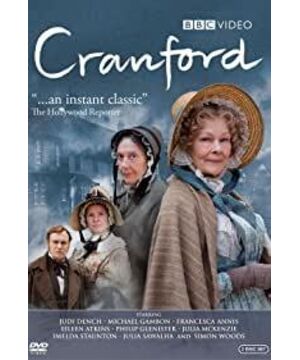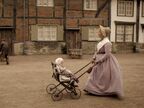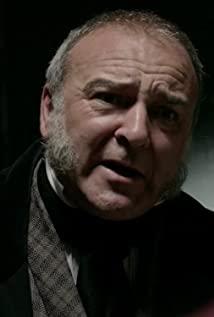I always regret that I didn't read many books when I was young, but sometimes I think that even if I read it, it is difficult to gain a deep understanding and experience with the perception and wisdom at that time. When I grew up like this, I didn't have the opportunity to read, or I didn't have the patience and atmosphere. Therefore, I naturally like to watch BBC's short dramas. Those words engraved with the style of the British classical period stretch out in front of my eyes with such a comfortable and elegant interpretation. The town I see today is called Cranford.
Mary told Jessie that she came back to Cranford because it was her mother's hometown, and more importantly, when the world was the same day by day, Cranford still kept her original appearance. Perhaps there is a hint of paranoia and stubbornness. The ladies in the town strictly adhere to the established rules, do not stop by after 12 o'clock, visit other people's homes for no more than 15 minutes, and so on. This kind of paranoia and caution prevented Deborah from enjoying the pleasure of sucking oranges, and even made Matilda and her sweetheart rub shoulders for a lifetime. When she finally had the chance to be together after 30 years, it was only a prelude to the passing.
Craford is full of little people of all kinds, they gossip, they are kind, they are hard-working, and they are upright. There are no bad guys, and the only so-called prisoner poached the wild things on Lady Ludlow's land under the oppression of the times, and was finally acquitted under Lady Ludlow's intercession. How can the footsteps of the big era allow small people to stop it? Cater couldn't convince Lady Ludlow, the first son of her son, this woman who was born with only two missions, one is to protect her children and the other is to defend her land, but even she herself knows that the biggest helplessness and pain in her life is knowing that After her death, her son will not return to the manor where she has been waiting for her whole life, but she is still guarding the only remaining son. Cater mentioned that the 1,000 pounds he invested in the factory earned him a return that was difficult to get from working on the manor for 30 years, but when he saw the children sleeping under the cotton yarn machine in the factory, he did not want to touch the money earned. .
As if all the extremes and ugliness of the big era are immune to life in Cranford, the women poured out their money to help Matilda, who failed in the investment, and told her to use a credible reason to make her believe that the money is what she deserves. . I remember Ms Forrester said to Mary that she was sorry and couldn't do more for Matilda because she was also very poor. When she thought of the scene she met with Matilda 30 years ago, she could only be ashamed that she couldn't do more.
Mr Cater believes that everyone has the right to be educated, and tries his best to help Harry who has nothing to do with him, even the disobedient Lady Ludlow. And the last thing he did before his death was to give everything to the child, let him study, open a school in that manor when he grew up, let everyone have books, and help Lady Ludlow repay the loan without reservation. mortgage.
It is a very warm town where everyone lives with the heart of making others happy, even if life is like this day after day.
A detail that suddenly came to my mind was that Dr Harrison was going to operate on the carpenter. He had no choice but to delay it until the day because there were not enough candles. The ladies who heard the news took out all the candles in the house. And these candles were saved by themselves, and they were only willing to light one at night.
The railway in the play represents the future, a future that they can't stop, the times crowded into the town they have been waiting for for generations like a flood of beasts, even if they don't want to, they must accept it and face it.
There is new medicine in the future, Dr Harrison has brought it in, he uses new methods to save people, he tries to save the arm that carpenters depend on for a living; there is gender equality in the future, Laurencia represents this trend, she is self-improving, she is not satisfied with The role given to women by the current society; the railway will lead to the town in the future, even if it is blocked, it is only a matter of time.
There are so many places that make people yearn for Craford, living in that tenderness and contentedly playing the role of their own little man. To adapt, to protect, to fight.
There will be kind and naive people like Matilda, there will be people like Deborah who can always calmly think and handle things properly, and there will be people like Mary who are independent of reason and help others get rid of misunderstandings and make their children their wishes. There are people like Jessie who have been waiting for their family all their lives and would rather give up their happiness in life.
Perhaps before the great era, human nature was always beautiful, so beautiful that "it's good to go home" and "it's good that she is happy". The starting point of friendship is not to ask for, but to each other's health and happiness.
There will be trivialities and misunderstandings, but in the small town, everyone always protects each other like family members, so Matilda will give Sophie the silk and satin that her younger brother promised her as a wedding dress when she was young. This is much luckier than herself. Catch the happy girl.
Suddenly I envy them, even if life is just enough food and clothing, but they are happy and satisfied, they have virtues.
Perhaps only by escaping from the lavish metropolis, can people accept life so peacefully and love life.
View more about Cranford reviews











